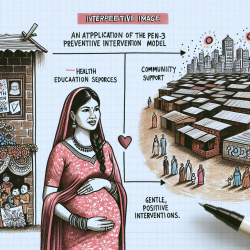The recent study titled "Effect of Socioeconomic Status on Wait Times for Patients Undergoing Treatment for Laryngeal Conditions in a Universal Healthcare System" offers valuable insights into the intersection of socioeconomic factors and healthcare delivery. Conducted within Canada's universal healthcare framework, this research provides a comprehensive analysis of how socioeconomic status (SES) influences treatment wait times for laryngeal conditions.
Key Findings from the Research
The study analyzed data from 578 patients who underwent laryngeal surgery over three years at an academic tertiary center. The findings revealed that:
- The mean wait time for surgery across all conditions was 123.5 days.
- No significant difference in wait times was observed between different SES groups.
- Patients with cancer or airway obstruction experienced shorter wait times compared to those with benign conditions.
This research indicates that, within the universal healthcare system studied, SES does not significantly impact wait times for laryngeal treatments. This suggests that the system effectively prioritizes clinical needs over socioeconomic factors, ensuring equitable access to care.
Implications for Practitioners
The findings offer several implications for practitioners seeking to enhance their practice and ensure equitable care:
1. Prioritizing Clinical Needs
The study highlights the importance of prioritizing clinical urgency over socioeconomic considerations. Practitioners can take this insight to advocate for systems and processes that ensure patients with urgent needs receive timely care, regardless of their SES.
2. Understanding Barriers Beyond SES
While SES did not affect wait times in this study, practitioners should remain vigilant about other potential barriers to care, such as geographic location or language differences. Addressing these barriers can further enhance equitable access to treatment.
3. Continuous Evaluation and Advocacy
This research underscores the need for ongoing evaluation of healthcare delivery systems. Practitioners should advocate for regular assessments of how different factors impact patient care and outcomes, ensuring that equity remains a central focus.
The Importance of Further Research
This study opens the door for further research into how various factors influence healthcare delivery within universal systems. Practitioners are encouraged to explore additional studies that examine:
- The impact of geographic location on access to specialized treatments.
- The role of implicit biases in treatment prioritization and patient interaction.
- The effectiveness of different models in reducing wait times across various medical conditions.
Pursuing such research can help refine healthcare systems and policies, ultimately improving patient outcomes and ensuring equitable access for all.
A Call to Action
The findings from this study provide an opportunity for practitioners to reflect on their practices and advocate for improvements within their healthcare systems. By prioritizing clinical needs, addressing potential barriers, and supporting ongoing research, practitioners can contribute to a more equitable healthcare environment.










